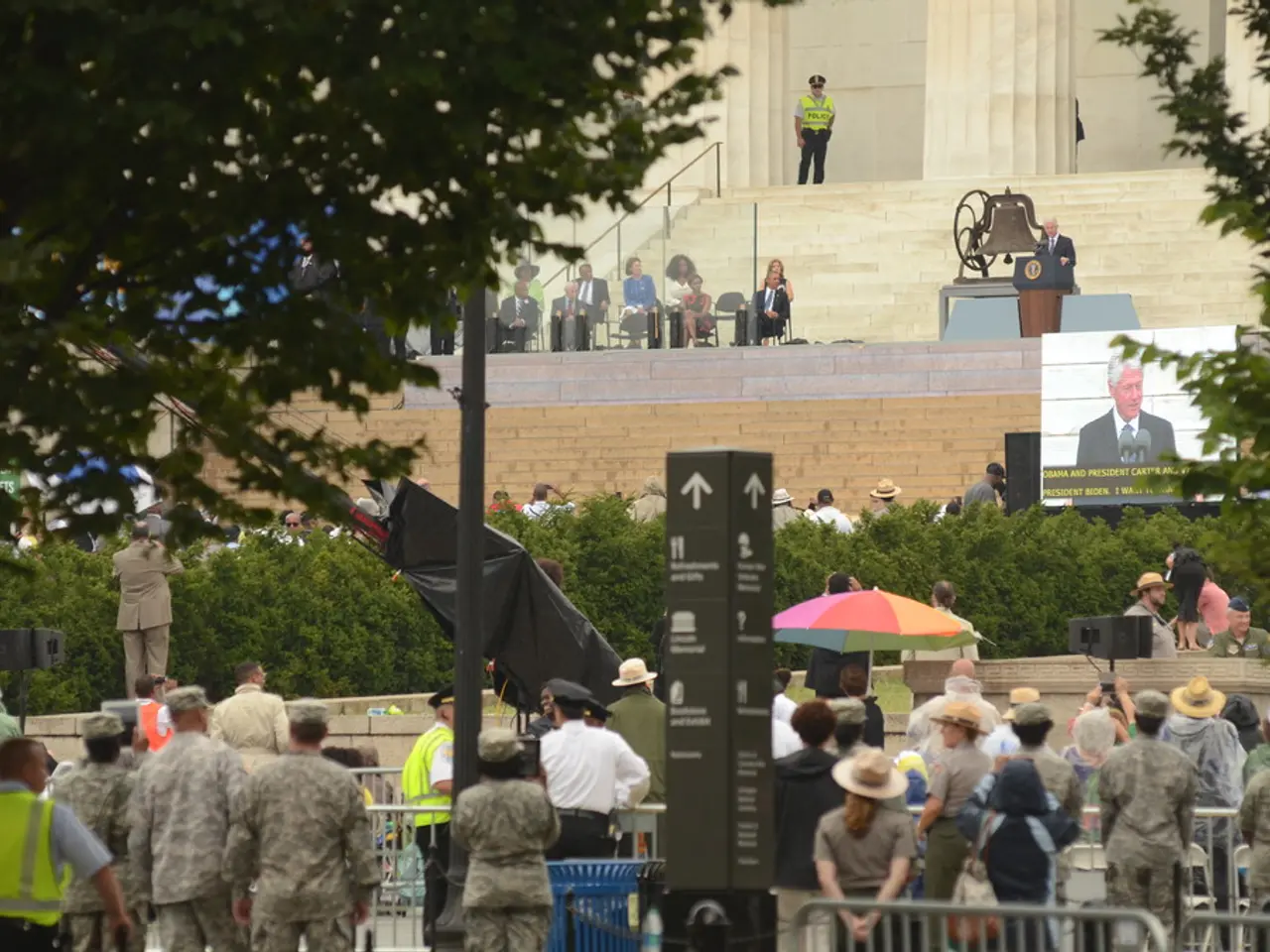Trump's proposed civil service recruitment strategy: Quality or invalid argument?
On May 29, 2025, the White House and Office of Personnel Management (OPM) jointly announced a new Merit Hiring Plan, aiming to modernize federal hiring by replacing outdated rules with a more flexible approach.
The plan mandates new requirements and procedures for executive branch hiring, a move designed to improve workforce quality, increase hiring efficiency, and ensure merit-based selections. One of the key changes is the implementation of skills-based assessments, which will allow agencies to select from a broader pool of top candidates.
A significant shift in the selection process is the designation of a senior-level political appointee to oversee the process, replacing the traditional career supervisor. This change is intended to speed up hiring and improve effectiveness, as managers have been made subject matter experts.
However, the new plan has raised legal and implementation challenges for agencies. Potential issues with the validity of employment practices, Prohibited Personnel Practices, and whistleblower protections are among the concerns. The former Chief Human Capital Officer, OPM attorney, and Merit Systems Protection Board vice chairman has expressed doubts about the plan's legal and policy flaws.
The strategy of the new hiring plan is not new, as the nation moved away from the spoils system towards a merit-based civil service with the passage of the Pendleton Act in 1883. Notably, Teddy Roosevelt, prior to becoming president, served on the Civil Service Commission and championed merit hiring and due process for civil servants.
In the first several months of the current administration, there were illegal and inhumane firings of thousands of civil servants, along with the removals of independent agency heads, board members, commissioners, and inspectors general. This history of political interference in the civil service has been a contentious issue, with an attempt by President Nixon in the early 1970s to fire civil servants and replace them with his loyalists being stopped by a bipartisan response in Congress.
The Merit Hiring Plan also includes a proposal to collapse all appointing authorities into one called "The Merit Service." Additionally, agencies must add new assessment/essay questions that will evidence applicants' support for the president's executive orders and priorities. This was not just to rid the incoming administration from "meddlesome" public servants, but also to create new vacancies and install presidential loyalists.
To address these concerns, the CHCO Council has been working on creating shared certificates and talent teams within agencies to share best practices. Furthermore, the US. Digital Service assisted with SME hiring before the Department of Government Efficiency (DOGE). The plan also aims to leverage USAJOBS' technology and data to assess all applicants for minimum qualifications and background checks.
However, the plan also requires agencies to abandon collecting demographic recruitment and workforce data, a move that has raised concerns about potential discrimination and lack of diversity in the hiring process.
The new Merit Hiring Plan represents a significant shift in federal hiring practices. While it aims to modernize and improve the process, it also raises important questions about the role of politics in civil service hiring and the potential impacts on diversity and fairness in the federal workforce.
Read also:
- Tobacco industry's suggested changes on a legislative modification are disregarded by health journalists
- Uncovering Political Ad Transparency: A Guide to Investigating opponent's Political Advertisements in the Digital Realm
- Elon Musk praises JD Vance's debate performance against Tim Walz
- Right-wing Israeli minister supports controversial plan for West Bank settlement expansion








